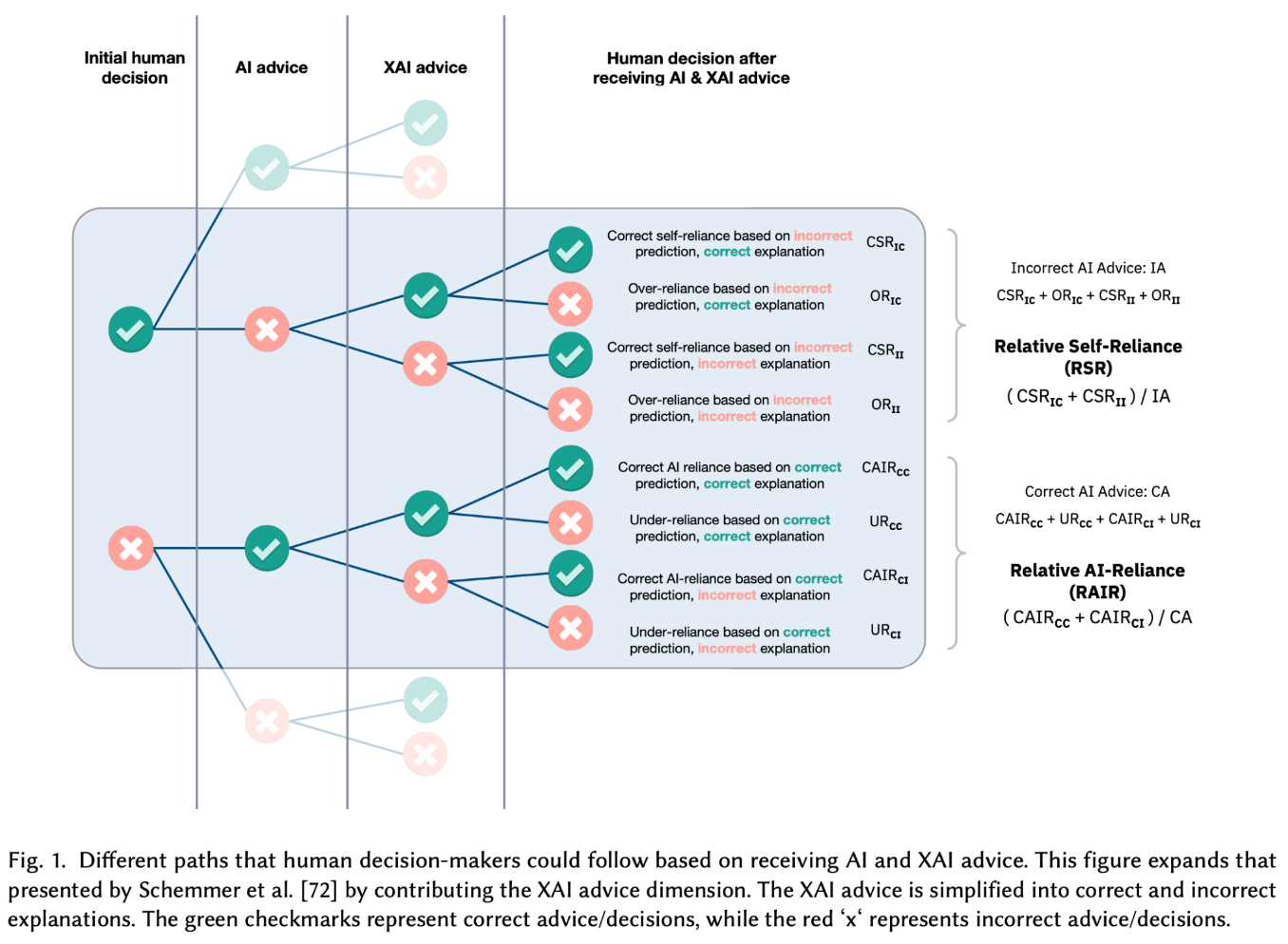The Impact of Imperfect XAI on Human-AI Decision-Making
Published at
CSCW
| San Jose, Costa Rica
2024

Abstract
Explainability techniques are rapidly being developed to improve human-AI
decision-making across various cooperative work settings. Consequently, previous
research has evaluated how decision-makers collaborate with imperfect AI by
investigating appropriate reliance and task performance with the aim of
designing more human-centered computer-supported collaborative tools. Several
human-centered explainable AI (XAI) techniques have been proposed in hopes of
improving decision-makers' collaboration with AI; however, these techniques are
grounded in findings from previous studies that primarily focus on the impact of
incorrect AI advice. Few studies acknowledge the possibility of the explanations
being incorrect even if the AI advice is correct. Thus, it is crucial to
understand how imperfect XAI affects human-AI decision-making. In this work, we
contribute a robust, mixed-methods user study with 136 participants to evaluate
how incorrect explanations influence humans' decision-making behavior in a bird
species identification task, taking into account their level of expertise and an
explanation's level of assertiveness. Our findings reveal the influence of
imperfect XAI and humans' level of expertise on their reliance on AI and
human-AI team performance. We also discuss how explanations can deceive
decision-makers during human-AI collaboration. Hence, we shed light on the
impacts of imperfect XAI in the field of computer-supported cooperative work and
provide guidelines for designers of human-AI collaboration systems.